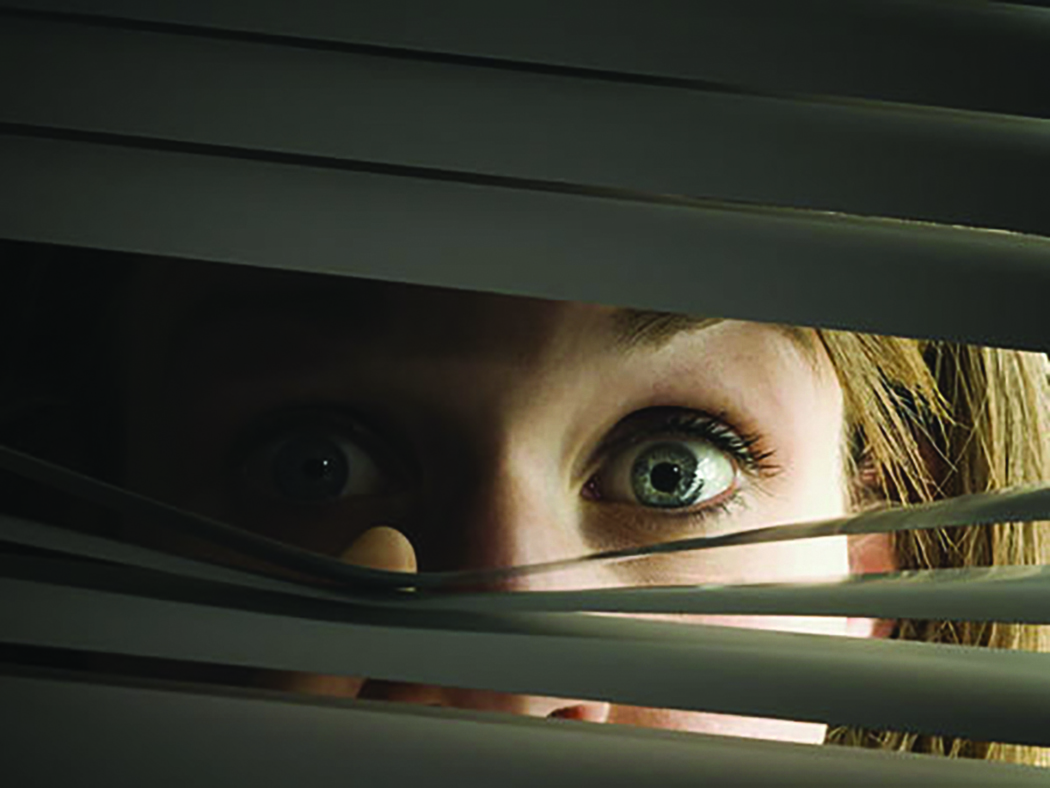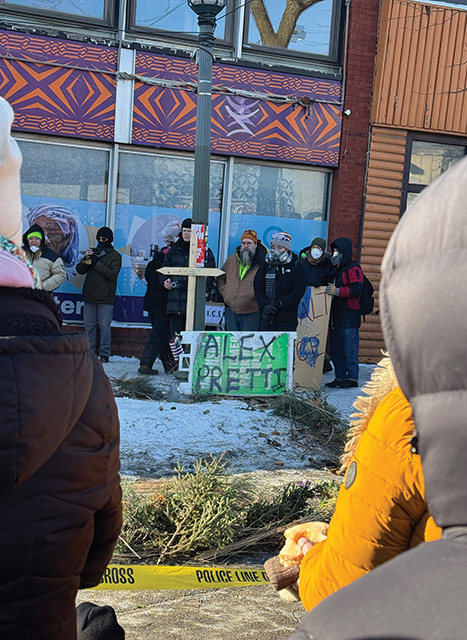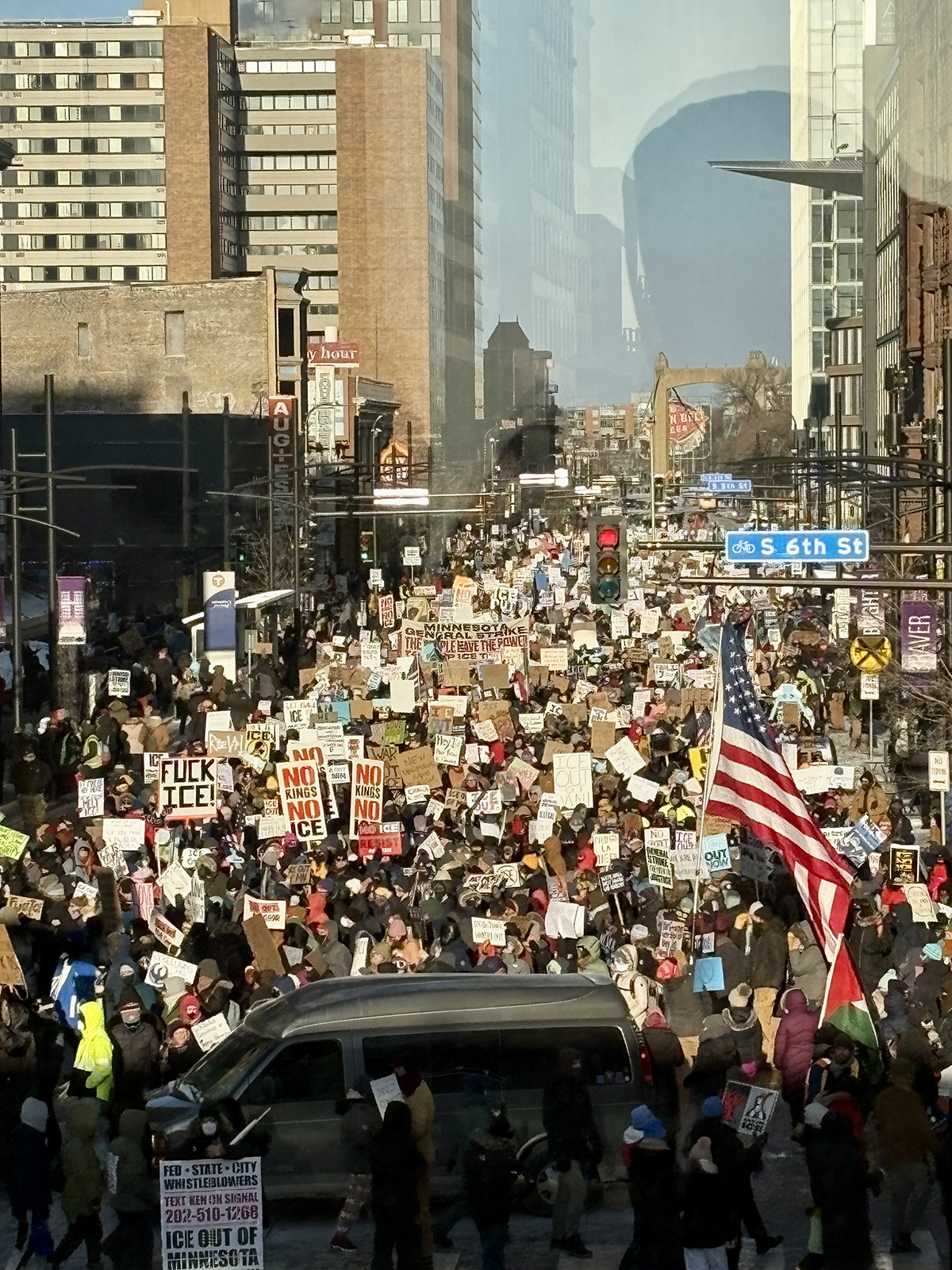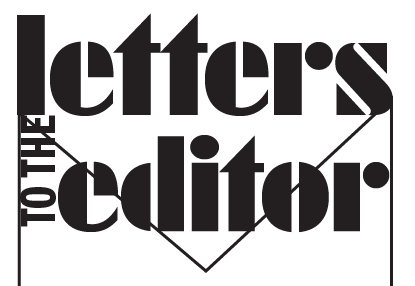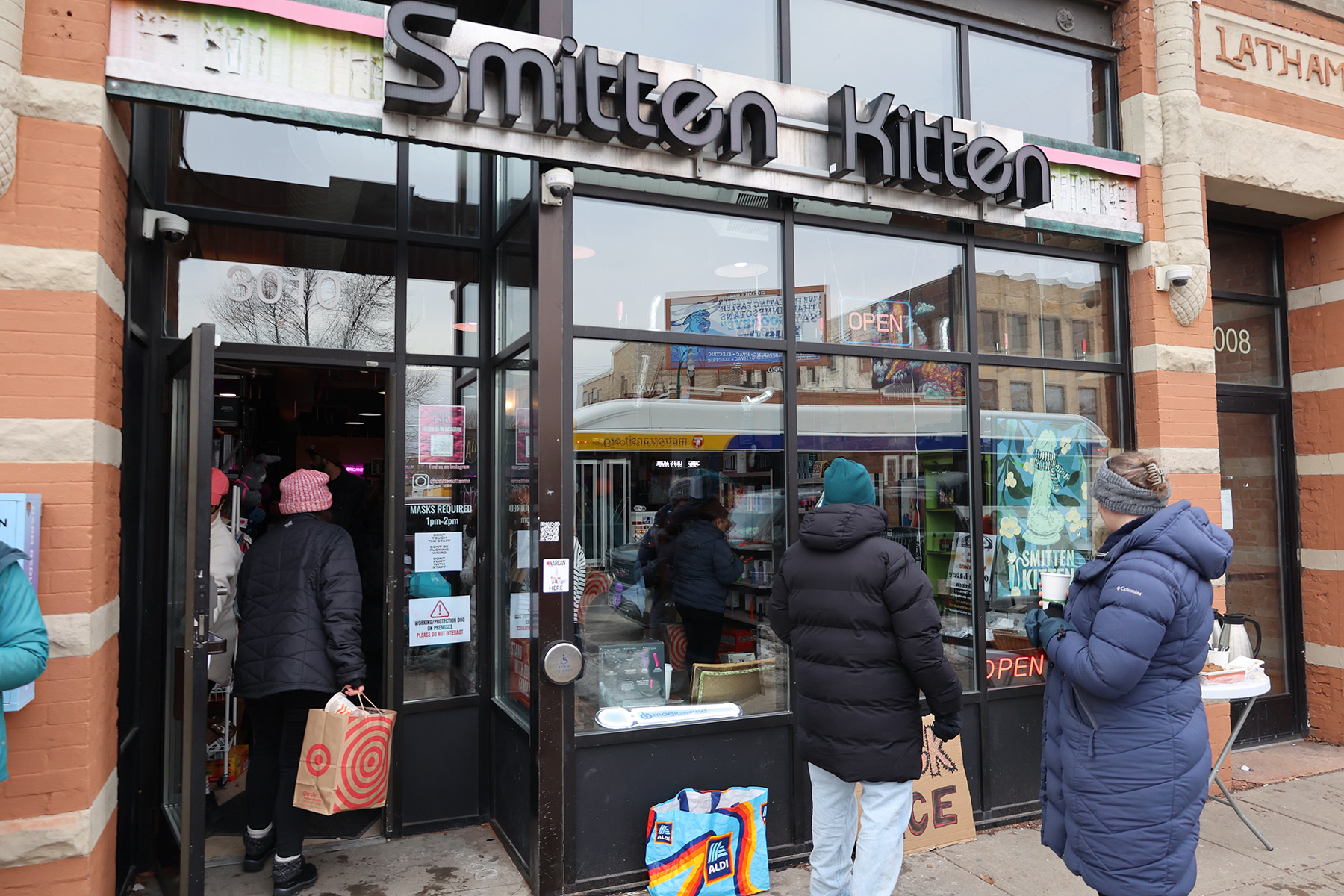In last month’s issue of the Hill & Lake Press I wrote about the bus tour that editor Craig Wilson and I took in early February to see the coordinated effort to rebuild the area of Lake Street that was so hard hit in the uprising after the murder of George Floyd. The piece was called Everyone’s Entitled to My Opinion: Two Tales of a City, Part 1, in the March edition.
On that tour, led by former mayor R.T. Rybak, now CEO of the Minneapolis Foundation, we heard about the resiliency of that community and the generous financial support that has poured into the area from government, foundations, corporations and individuals, and we saw the progress being made in rebuilding and restoring the local businesses.
The tour was upbeat and encouraging, but I will freely confess that I find myself hoping that the larger community’s support and enthusiasm for rebuilding Lake Street will continue west of Nicollet Avenue as well. So I called R.T. (full disclosure: we’re friends) to ask, “doesn’t anyone care about Uptown?”
R.T. reminded me that he once lived on Humboldt and Lake and still lives only a short walk away. Yes, he cares about Uptown.
But restoration efforts had to be primarily between Nicollet and Minnehaha Avenue where there was massive multi-block damage. “That area suffered between $200 million to $400 million dollars of uninsured losses,” he said, and most businesses didn’t have enough insurance to cover such extreme damages. The funds are distributed by the Lake Street Council, which created a panel of business owners and neighbors to determine which businesses qualify for assistance.
Obviously, the situation in Uptown is very different. Right, I said, “We have bike lanes!” When I asked if there were plans to put in bike lanes on that traffic-heavy stretch of central Lake, he answered with a laugh. “I’m not the mayor.”
So where does that leave Uptown?
While it was vandalized, its buildings were not destroyed. In fact, it’s likely that the cavernous buildings played a part in destroying Uptown. When the big chain retailers moved in they changed the character of the neighborhood and drove out smaller businesses. And when times turned tough, they were the first to go, leaving behind huge vacant buildings. Unlike the other stretch of Lake Street where shops can be restored and rented to small businesses, repurposing those now empty behemoths will take a lot of creativity and cash.
But there are signs of that starting to happen. Not all of us are keen on the idea of Uptown as an entertainment district, but that may be the fate handed to us by North Face and Victoria’s Secret. The old Uptown of McPunks and Williams Pub is not coming back.
There are signs of resiliency.
On that stretch alone businesses like Penzey’s and Magers & Quinn are hanging tight. Amazing Thailand continues to draw a crowd, the New Uptown Café has opened in the former North Face store, and the Granada Theater has been restored to its previous glory with a bar and restaurant in the lobby and an event space in the theater. (Now let’s restore on street parking, some landscaping and the promised on-street amenities that never materialized.)
Seven Points, formerly Calhoun Square, is an audacious leap into a combination of housing and retail, which, if done right, could go a long way toward making Uptown more than a party zone for 20-year-olds transitioning to 30-year-olds. According to an article in the Star Tribune, that is what the developer North-pond Partners has in mind.
There is still plenty to worry about, from crime to lack of parking to the drear streetscape created in the disastrous makeover of Hennepin south of Lake. The businesses north of Lake Street face enormous challenges in the upcoming makeover of that ten block stretch of Hennepin, not only in the two years of construction but also in the resulting avenue that curtails cars and parking in favor of bikes and buses — a well-intended but questionable effort to reduce carbon.
In upcoming issues of the Hill & Lake Press we’ll do a deeper dive into what’s happening in Uptown, or should be. We’ll talk to business owners and leaders of the Uptown Association about what keeps them believing in the future of Uptown. And we’ll look at what neighbors like all of us can do to help shape that future.

